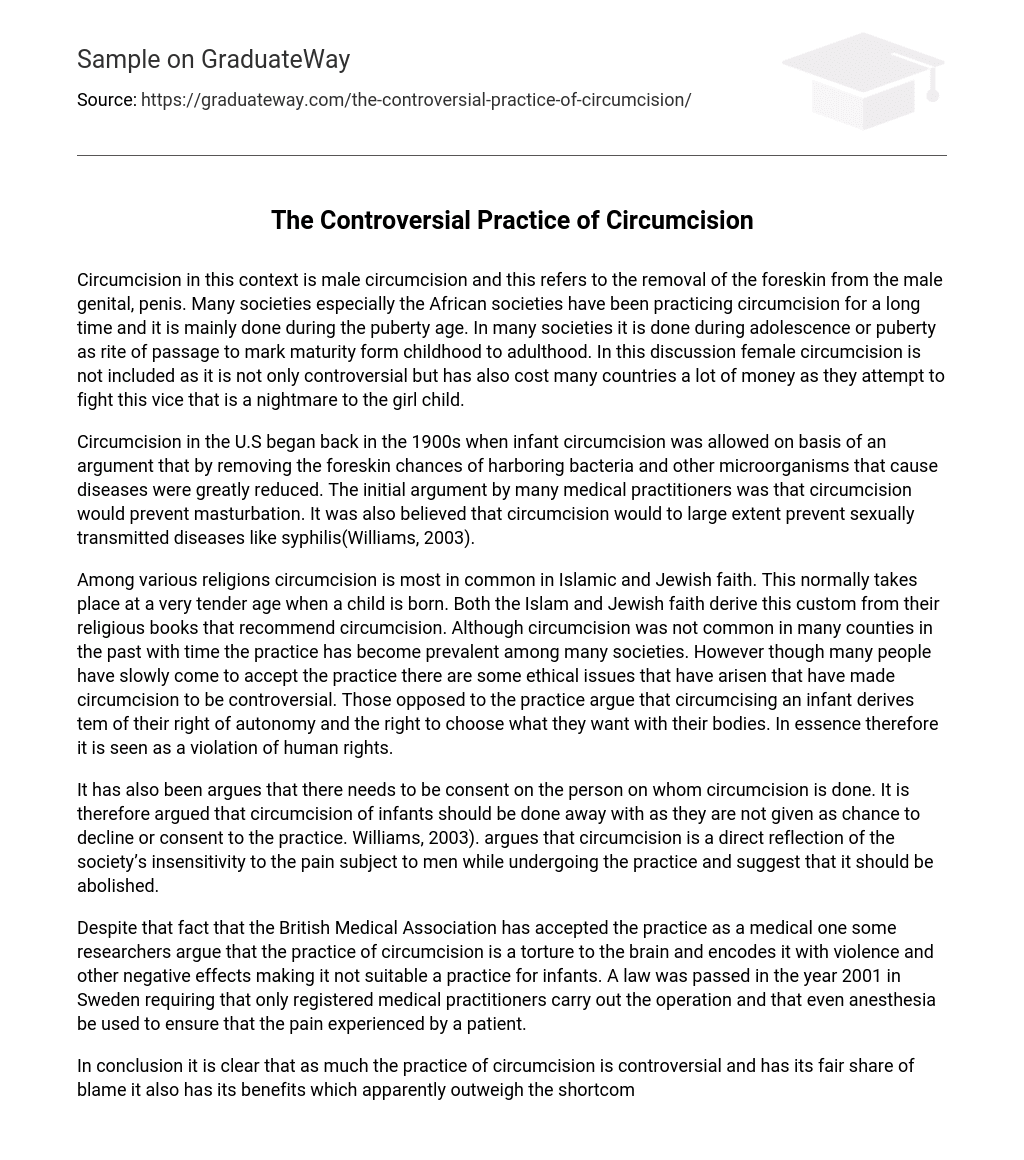Circumcision in this context is male circumcision and this refers to the removal of the foreskin from the male genital, penis. Many societies especially the African societies have been practicing circumcision for a long time and it is mainly done during the puberty age. In many societies it is done during adolescence or puberty as rite of passage to mark maturity form childhood to adulthood. In this discussion female circumcision is not included as it is not only controversial but has also cost many countries a lot of money as they attempt to fight this vice that is a nightmare to the girl child.
Circumcision in the U.S began back in the 1900s when infant circumcision was allowed on basis of an argument that by removing the foreskin chances of harboring bacteria and other microorganisms that cause diseases were greatly reduced. The initial argument by many medical practitioners was that circumcision would prevent masturbation. It was also believed that circumcision would to large extent prevent sexually transmitted diseases like syphilis(Williams, 2003).
Among various religions circumcision is most in common in Islamic and Jewish faith. This normally takes place at a very tender age when a child is born. Both the Islam and Jewish faith derive this custom from their religious books that recommend circumcision. Although circumcision was not common in many counties in the past with time the practice has become prevalent among many societies. However though many people have slowly come to accept the practice there are some ethical issues that have arisen that have made circumcision to be controversial. Those opposed to the practice argue that circumcising an infant derives tem of their right of autonomy and the right to choose what they want with their bodies. In essence therefore it is seen as a violation of human rights.
It has also been argues that there needs to be consent on the person on whom circumcision is done. It is therefore argued that circumcision of infants should be done away with as they are not given as chance to decline or consent to the practice. Williams, 2003). argues that circumcision is a direct reflection of the society’s insensitivity to the pain subject to men while undergoing the practice and suggest that it should be abolished.
Despite that fact that the British Medical Association has accepted the practice as a medical one some researchers argue that the practice of circumcision is a torture to the brain and encodes it with violence and other negative effects making it not suitable a practice for infants. A law was passed in the year 2001 in Sweden requiring that only registered medical practitioners carry out the operation and that even anesthesia be used to ensure that the pain experienced by a patient.
In conclusion it is clear that as much the practice of circumcision is controversial and has its fair share of blame it also has its benefits which apparently outweigh the shortcomings.
Reference:
William, J. (2003). Circumcision. Mc Graw, London





